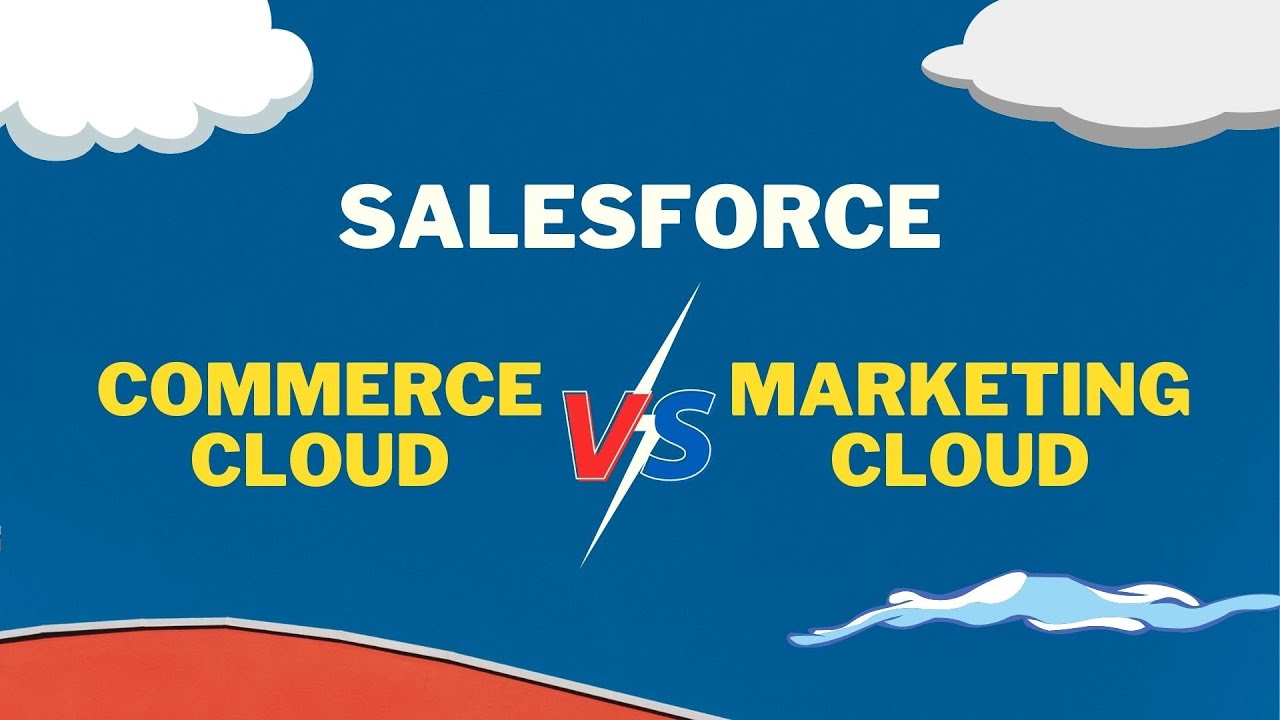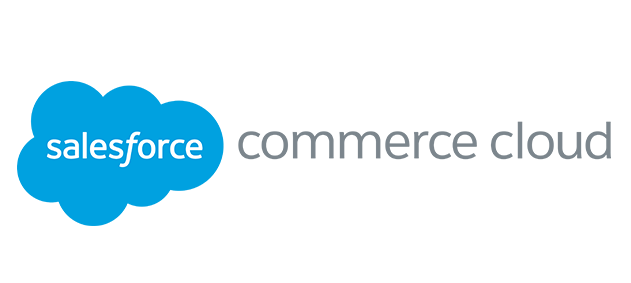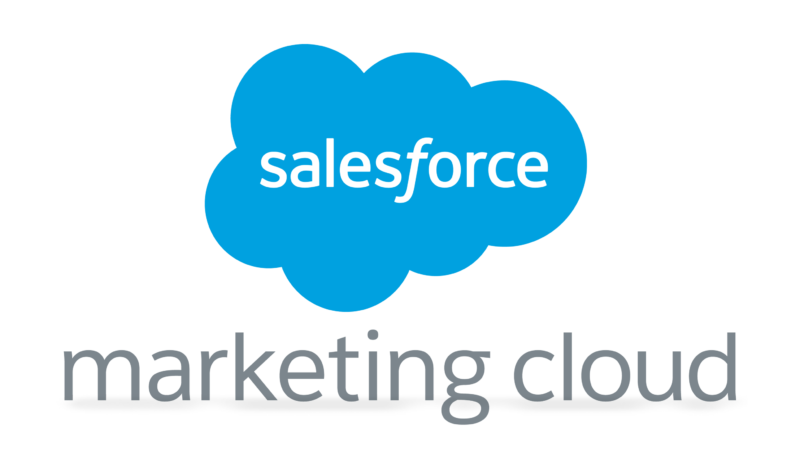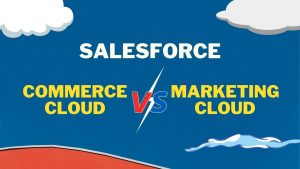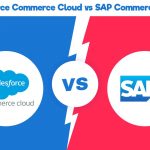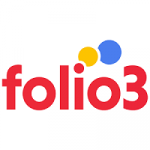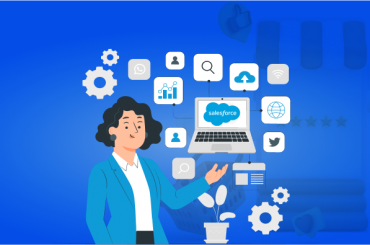Salesforce Commerce Cloud vs Salesforce Marketing Cloud
Last Updated | April 28, 2023
Table of Contents
Salesforce Commerce Cloud Vs Salesforce Marketing Cloud which one is superior?
The Sales Software product is the best option when comparing Salesforce Commerce Cloud integration and Sales and Marketing Pro.
This guarantees that your company’s application is effective, successful, and productive. You are able to comprehend the finer points, such as the pricing, the terms of the offer, the plans offered by each seller, etc.
You will gain a better knowledge of the better ones thanks to this post. Sales and Marketing Pro receives an average of 8.9 points for overall quality and a 99 per cent user happiness rating, compared to 8.8 points for Salesforce Commerce Cloud’s overall quality and a 99 percent user satisfaction rating.
By sending email inquiries to the two businesses and seeing which one responds first, you can also learn whichever vendor is more dependable.
Questions about scaling commerce? Read this article Salesforce eCommerce integration and What is Salesforce Commerce Cloud Pricing? The Ultimate guide to having a better understanding of the topic.
What Is Salesforce Commerce Cloud?
Previously called “Demandware,” Salesforce Commerce Cloud is now available.
It is a cloud-based, easy-to-use SaaS eCommerce solution with features that will help companies develop their brands, upsell goods and services based on customer buying patterns, and convert customers in an efficient and straightforward way.
Currently, Salesforce Commerce Cloud development offers eCommerce solutions for organizations of all sizes and types, enabling them to effectively sell their products online.
You might also want to read: Salesforce Merchandising
-
Salesforce Commerce Cloud’s Best Features and Benefits
First, we are listing the features;
- Multi-site Management
- Scalability
- Auto-Upgrade
Now, these are the benefits;
- Intelligence Predictive
- Enhanced Marketing Tools
- Mobile-Friendly Interface
- Customer care Service
What Is Salesforce Marketing Cloud?
Salesforce Marketing Cloud is a marketing platform with the ability to support a wide range of marketing activities.
Such as the execution of multi-channel campaigns, dynamic customer journeys, pre-and post-campaign analytics, audience building, and customer segmentation, social media engagement and advertising, and data management platforms.
SFMC accomplishes this via the “Studios” and “Builders:
Read about top Salesforce trends that will help businesses keep up with all the latest Salesforce future developments
Channels of communication are managed and interacted with in “studios.” This encompasses the Email Studio, Social Studio, and Mobile Studio in SFMC.
Data, content, and customer journeys are managed by “builders” in the Salesforce Marketing Cloud platform. The Studios frequently use them, although they are not required to.
A platform with many features and capabilities for the marketing industry is Salesforce Marketing Cloud. The following is included in this:
- Real-time customer engagement
- Automated email and marketing
- Social media management
- Mobile and push notifications management
- Customer marketing analytics
-
Salesforce Marketing Cloud’s Best Features and Benefits
First, we are listing the features;
- Advertising Studio
- Mobile Studio
- Social Studio
- Email Studio
- Interaction Studio
- Journey Builder
- Customer 360 Audiences
- Pardot
- Datorama
Now, these are the benefits;
- Wider marketing funnel
- Boost conversion & productivity
- Better visibility & marketing campaigns
- Improved KPI/OKR tracking
- Fully customizable customer journeys
- State-of-the-art email marketing tools
- Data analytics and forecasting built-in
Questions? Ask about Salesforce Commerce Cloud implementation, or anything else. Also, Read this Guide What Is Salesforce Commerce Cloud
What’s The Difference Between Salesforce Commerce Cloud And Salesforce Marketing Cloud?
There are two main differences between Salesforce Commerce Cloud vs Salesforce Marketing Cloud. A unified marketing platform known as Salesforce Marketing Cloud is utilized to comprehend and interact with consumers and personalize their experiences.
Email marketing automation integrates engagements from whatever source or device safely and efficiently, combining client information and behavior to create timely communications.
The No. 1 CRM sales app in the world is Salesforce Commerce Cloud. Everything you require is made easily accessible whenever and where ever you need it thanks to it.
It’s incredibly easy to do, covering everything from social media sites and contacts to mobile devices, chat apps, analytics, association across your entire company, and making sure you close deals quickly.
Read Also: Volusion vs Shopify
While the Salesforce Sales Cloud may primarily be categorized under the area of “CRM,” the Salesforce Marketing Cloud falls under the category of “Marketing Automation,” which would be the category of the tech stack.
You might also want to read: Benefits of using eCommerce Site Migration
Some of the functionalities offered by Salesforce Marketing Cloud are listed below:
- Salesforce DMP
- Email Studio
- Builder
However, the following features are available with Salesforce Sales Cloud:
- To help you increase productivity, keep accurate data from popular social networking sites like Facebook, Twitter, LinkedIn, YouTube, and Klout close to hand.
- No matter where you are, you may log calls, respond to excellent leads, take advantage of a good situation, or check dashboards.
- Make accurate information about the deals business and the team members are working on available through your application as well as in real-time on your Chatter feed. This information included the deal stage, products, competitors, quotations, and deal team conversations.
The Salesforce Sales Cloud is utilized by well-known businesses including Salesforce, CircleCI, and Zillow, whereas, the Salesforce Marketing Cloud is being used by firms like Segment, Seven Corners, and Digital Pulp.
You might also want to read: Salesforce Commerce Cloud Benefits
Compared to Salesforce Marketing Cloud, which is listed in 11 company stacks and 7 developer stacks, Salesforce Sales Cloud has a bigger audience because it is mentioned in around 795 company stacks and 951 developer stacks.
Explore the complete Salesforce 360
How many companies use Salesforce Commerce Cloud Vs Salesforce Marketing Cloud?
We have listed the names of the companies both Salesforce Commerce Cloud vs Salesforce Marketing Cloud used by different companies. The lists go like this;
The name of the companies which use Salesforce Marketing Cloud are;
- BeachBody
- OneFit
- Nutmeg
- Seven Corners
- Segment
- Openfit
- MuscleTech-Test
The name of the companies which use Salesforce Commerce Cloud is;
- Trello
- Delivery Hero SE
- Accenture
- Salesforce
- HENNGE
- Lido
- CircleCI
Read: How to Boost Performance Salesforce Commerce Cloud
Salesforce Commerce Cloud vs Salesforce Marketing Cloud: Which One Is The Better Choice For Your Needs?
Read about How To Go Headless With Salesforce Headless Commerce
Numerous sectors and business sizes make use of Salesforce Marketing Cloud.
Although Marketing Cloud is frequently considered an enterprise-level platform, and it may be, the numerous editions make it adaptable for businesses of all sizes.
Additionally, you may customize SFMC to your unique needs and it can adapt to your changing demands and the needs of your clients with the a-la-carte style variety of add-on features.
Everything You Need To Know About Salesforce For Small Business
As was already noted, Salesforce Marketing Cloud is primarily created as a platform for business-to-consumer transactions, although B2B firms do utilise it as well.
As consumers, particularly internal decision-makers, want to receive customer journeys similar to those of B2C customers, the use of SFMC in B2B is growing.
Although SFMC is not the most affordable product in its category, this is an expandable platform that can grow together with your business and is not a resource that will become obsolete for your firm.
Compare the similarities and differences between Salesforce Commerce Cloud vs Demandware
This is a crucial factor to take into account for every tool in the technology stack.
You must take into account a variety of factors in addition to the platform’s price, including its integrations, the data it would provide for tracking and data -as well as the effect on current metrics, its support for your enterprise data model, data migrations.
The overall impact on your business; the training, organizational structure, ROIs, and it is capable to enhance customer experience while achieving your intended outcomes.
Final Words
This innovation is wonderful to see.
We are compelled to think about how many client companies are still on the verge of being unable to access either of the two.
Due to the fact that companies of all sizes are prepared and prepared to install these SFCC or SMCs, we are more interested in learning when and if the distinction between Salesforce Commerce Cloud vs Salesforce Marketing Cloud will be closed.
This got us to think about what practical steps could speed up the adoption of this cutting-edge technology.
The decision between the two will depend on the objectives and successes that the businesses would like to reach and based on these demands and requirements they should choose the right technology, although we are not yet certain of this as well.
If you still have questions regarding Salesforce Commerce Cloud vs Salesforce Marketing Cloud you can reach out to team Folio3, a leading Salesforce Commerce Cloud consultant, and clear the fog out so you can make a well-informed and well-thought decision.
FAQs:
Is Salesforce Marketing Cloud the same as commerce cloud?
No, they are not. The customer data platform is expanded by Marketing Cloud to provide real-time engagement, audience segmentation, and loyalty management.
For businesses to develop quickly with clicks rather than code, Commerce Cloud delivers additional data connectors, improves order administration, and adds headless commerce features.
What is the difference between Salesforce sales cloud and Marketing Cloud?
Salesforce Sales Cloud is designed to close sales and generate income, whereas Salesforce Marketing Cloud is meant to find leads and direct customers toward your product or service.
What is the difference between Salesforce and Salesforce Commerce Cloud?
Salesforce Commerce Cloud is the B2C eCommerce platform, whereas Salesforce Core is essentially their CRM system (formerly known as Demandware) Javascript makes up SFCC’s tech stack.
Read Also Shopify Plus vs Shopify Advanced
Standard e-commerce features like search, product display, shopping cart, and checkout are all included in the core of SFCC.
Is Marketing Cloud separate from Salesforce?
Yes. A key element of the Salesforce Customer Success Platform is the Marketing Cloud.
It functions in conjunction with the Sales Cloud, Service Cloud, Community Cloud, Analytics Cloud, and App Cloud to complete the Customer Success Platform.

